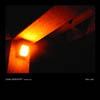 John Bischoff is one of the best-known Bay-area electronic composers.For decades he has been producing electronic and computer-based music,and his newest release on 23five collects recent (1999-2002) worksusing the Max/MSP language. My limited knowledge prohibits me fromunderstanding how this software allows a fuller realization of thetheory Bischoff says links all seven pieces on Aperture."Reflective intention" describes a situation in which sound structureis determined "not only through the predetermined elements which gointo a piece, but also through the active process of listening to themusic as it happens and responding accordingly." I cannot untangle allof Bischoff's heady liner notes; also, I cannot see how his "reflectiveintention" could not just as easily be called improvisation. I amcomfortable to call this improvised computer music, and fine music atthat. The variety of compositional structure alone makes Aperture apleasant listen. The opening "Piano 7hz" features thick, chiming soundfragments spread sluggishly across intermittent clinks and low rumbles,at a lazy, decaying interval with pacing that recalls Morton Feldman.Earlier tracks like "Immaterial States" and "Graviton" are arrangedaround a latticework of extended sounds that evolve from low-levelmachine chugs to piercing whines, impressive in their ability to evokemovement or suggest visual correspondents without defining the natureor origin of the individual sounds. All six tracks on Aperturewere recorded in real-time, producing a temptation, in the listener, togrant the most complex works a precedence relating to the assumedintensity or struggle of their birth. One of the most enjoyable pieceshere, however, is probably the most simple. "Sealed Cantus" is acollaborative track created from two sound sources, the recorded soundof a water fountain sculpture by Kenneth Atchley and Bischoff'smanipulation of static. The arresting density of the resulting track istreated to a subtle structuring, leading the rapt listener toward thepiece's harrowing finale. Aperture's title track, one of thefour recordings from 2002, provides neat closure to a disc that is bothchallenging and remarkable in its potential for repeated listening andaccessibility as a cohesive statement. "Aperture" condenses much of theideas represented in the previous six tracks into a simplerise-and-fall movement, emphasizing the collective statement made bythese essentially "separate" works, and the seductive aura ofBischoff's music as a whole.
John Bischoff is one of the best-known Bay-area electronic composers.For decades he has been producing electronic and computer-based music,and his newest release on 23five collects recent (1999-2002) worksusing the Max/MSP language. My limited knowledge prohibits me fromunderstanding how this software allows a fuller realization of thetheory Bischoff says links all seven pieces on Aperture."Reflective intention" describes a situation in which sound structureis determined "not only through the predetermined elements which gointo a piece, but also through the active process of listening to themusic as it happens and responding accordingly." I cannot untangle allof Bischoff's heady liner notes; also, I cannot see how his "reflectiveintention" could not just as easily be called improvisation. I amcomfortable to call this improvised computer music, and fine music atthat. The variety of compositional structure alone makes Aperture apleasant listen. The opening "Piano 7hz" features thick, chiming soundfragments spread sluggishly across intermittent clinks and low rumbles,at a lazy, decaying interval with pacing that recalls Morton Feldman.Earlier tracks like "Immaterial States" and "Graviton" are arrangedaround a latticework of extended sounds that evolve from low-levelmachine chugs to piercing whines, impressive in their ability to evokemovement or suggest visual correspondents without defining the natureor origin of the individual sounds. All six tracks on Aperturewere recorded in real-time, producing a temptation, in the listener, togrant the most complex works a precedence relating to the assumedintensity or struggle of their birth. One of the most enjoyable pieceshere, however, is probably the most simple. "Sealed Cantus" is acollaborative track created from two sound sources, the recorded soundof a water fountain sculpture by Kenneth Atchley and Bischoff'smanipulation of static. The arresting density of the resulting track istreated to a subtle structuring, leading the rapt listener toward thepiece's harrowing finale. Aperture's title track, one of thefour recordings from 2002, provides neat closure to a disc that is bothchallenging and remarkable in its potential for repeated listening andaccessibility as a cohesive statement. "Aperture" condenses much of theideas represented in the previous six tracks into a simplerise-and-fall movement, emphasizing the collective statement made bythese essentially "separate" works, and the seductive aura ofBischoff's music as a whole.samples:


 Greg Dulli is no stranger to death, as his albums have included songstinged with mortality. In recent years, however, he seemed to becooling off and enjoying life a bit more. He was working on materialfor a new album when he got the word that his good friend Ted Demme haddied of heart failure while playing at a charity basketball event earlyin 2002. Suddenly the album Dulli was working on had no meaning for himanymore, and he turned again to the familiar material of his past. Theman with the notorious party lifestyle began penning new material, andthe result is the death party record Blackberry Belle.The classic Dulli sound is back for the most part, with full sex rompand pomp, but every song has a twisted edge where it deals with loss onsome level or another. Dulli is starting to see the dangers of thenightlife he so casually sidled up next to at the bar, as the openinglines of the record show: "Black out the windows, it's party time/Youknow how I love stormy weather, so let's all play suicide." TheTwilight Singers of today are a tight group, with loud guitars, chorusvocals, and a smoky groove that ties it all together. Samples are now agreater part of the vocabulary, as well, from the crowd cheers on"Feathers" to the European phone ring sample that is the backbone of"Esta Noche." Several guests also punctuate Dulli's world of fun orgloom, from Petra Haden to Mark Lanegan. This album belongs to Dulli,though, as his first true work after the Afghan Whigs' demise. He walksthe walk, and he's always talked the talk, and for the first time heseems in the right place with it all. It's all or nothing on everytrack, and the focus shifts easily from narrator to voyeur for whateverbrings across the meaning more. One of his bands is gone, and the otherhe's burned down only to rebuild stronger than it was before. There maybe life in the old boy yet.
Greg Dulli is no stranger to death, as his albums have included songstinged with mortality. In recent years, however, he seemed to becooling off and enjoying life a bit more. He was working on materialfor a new album when he got the word that his good friend Ted Demme haddied of heart failure while playing at a charity basketball event earlyin 2002. Suddenly the album Dulli was working on had no meaning for himanymore, and he turned again to the familiar material of his past. Theman with the notorious party lifestyle began penning new material, andthe result is the death party record Blackberry Belle.The classic Dulli sound is back for the most part, with full sex rompand pomp, but every song has a twisted edge where it deals with loss onsome level or another. Dulli is starting to see the dangers of thenightlife he so casually sidled up next to at the bar, as the openinglines of the record show: "Black out the windows, it's party time/Youknow how I love stormy weather, so let's all play suicide." TheTwilight Singers of today are a tight group, with loud guitars, chorusvocals, and a smoky groove that ties it all together. Samples are now agreater part of the vocabulary, as well, from the crowd cheers on"Feathers" to the European phone ring sample that is the backbone of"Esta Noche." Several guests also punctuate Dulli's world of fun orgloom, from Petra Haden to Mark Lanegan. This album belongs to Dulli,though, as his first true work after the Afghan Whigs' demise. He walksthe walk, and he's always talked the talk, and for the first time heseems in the right place with it all. It's all or nothing on everytrack, and the focus shifts easily from narrator to voyeur for whateverbrings across the meaning more. One of his bands is gone, and the otherhe's burned down only to rebuild stronger than it was before. There maybe life in the old boy yet. No doubt partially influenced by Benjamin Gibbard's work in the Postal Service, Transatlanticismshows off a denser, darker, and here and there more electronic DeathCab for Cutie than ever before. That's just the start of the changes,however, as their fourth album feels like a complete renovation oftheir familiar emo-tinged sound. Gibbard's voice is almostunrecognizable for most of the opening cut "The New Year" until,towards the end, his familiar whine breaks through. Then out of thepower of that track, the lamb emerges on "Lightness," and it's clearthat DCFC have an agenda: to prove that they can evolve. They've done afine job of it. Gone is the youthful idealism and the struggle of thoseviews; replacing it is an existentialism and an acceptance of some ofthe wrongs that everyone knows exist but are afraid to say. There arecracks in the veneer that need exposing, from the mundane matter offinding photos of an old love in the glove compartment to recognizing afling for what it is and letting it go. The record bounces around fromthought to thought as though these were all memories and thoughts thatshould have been left behind. DCFC faces it head on, bravely moldingtheir sound around these schizophrenic thoughts. Chris Walla'sproduction work also takes a leap forward, with the songs soundingclearer and crisper all around, and Gibbard's voice has never soundedso pure. There is a new power, a new clarity, and a new attack in theband that doesn't sound forced as it did on certain songs on The Photo Album,and there are no awkward moments. Even when things are slowed down orcalmer in delivery there is an energy crackling beneath the surface,waiting to surge. It's not always a smooth and easy ride for DCFC'slatest, but it's still a nice trip all the way down.
No doubt partially influenced by Benjamin Gibbard's work in the Postal Service, Transatlanticismshows off a denser, darker, and here and there more electronic DeathCab for Cutie than ever before. That's just the start of the changes,however, as their fourth album feels like a complete renovation oftheir familiar emo-tinged sound. Gibbard's voice is almostunrecognizable for most of the opening cut "The New Year" until,towards the end, his familiar whine breaks through. Then out of thepower of that track, the lamb emerges on "Lightness," and it's clearthat DCFC have an agenda: to prove that they can evolve. They've done afine job of it. Gone is the youthful idealism and the struggle of thoseviews; replacing it is an existentialism and an acceptance of some ofthe wrongs that everyone knows exist but are afraid to say. There arecracks in the veneer that need exposing, from the mundane matter offinding photos of an old love in the glove compartment to recognizing afling for what it is and letting it go. The record bounces around fromthought to thought as though these were all memories and thoughts thatshould have been left behind. DCFC faces it head on, bravely moldingtheir sound around these schizophrenic thoughts. Chris Walla'sproduction work also takes a leap forward, with the songs soundingclearer and crisper all around, and Gibbard's voice has never soundedso pure. There is a new power, a new clarity, and a new attack in theband that doesn't sound forced as it did on certain songs on The Photo Album,and there are no awkward moments. Even when things are slowed down orcalmer in delivery there is an energy crackling beneath the surface,waiting to surge. It's not always a smooth and easy ride for DCFC'slatest, but it's still a nice trip all the way down.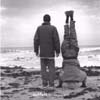 It only takes a few, short moments to ruin an entire record completely. Why must obscene jazz samples (i.e., elevator sounds) be used in conjunction with beat and bass heavy arrangements? Those overly-vibrant, obnoxious, and sickeningly bright bass pops combined with dynamically static horn parts lead only to decay. The decay is obviously contagious as it tends to infect the rest of the album.
It only takes a few, short moments to ruin an entire record completely. Why must obscene jazz samples (i.e., elevator sounds) be used in conjunction with beat and bass heavy arrangements? Those overly-vibrant, obnoxious, and sickeningly bright bass pops combined with dynamically static horn parts lead only to decay. The decay is obviously contagious as it tends to infect the rest of the album.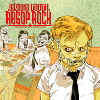 "Dear Mr. P (Label Boss),
"Dear Mr. P (Label Boss), Satan, oscillate my metallic sonatas! A palindrome is a word or phrase that reads the same forward or backward. Drew Mulholland recorded this album of ritualistic electronics in celebration of our first palindromic year since, er, 1991. The album was recorded starting at 20:02 on 20/02 2002. Each track is 20:02 long. Get it? Pretty neato, huh? Ten animals I slam in a net.
Satan, oscillate my metallic sonatas! A palindrome is a word or phrase that reads the same forward or backward. Drew Mulholland recorded this album of ritualistic electronics in celebration of our first palindromic year since, er, 1991. The album was recorded starting at 20:02 on 20/02 2002. Each track is 20:02 long. Get it? Pretty neato, huh? Ten animals I slam in a net. It all begins with a tinny, toy piano melody that seems to indicatethat we're entering some old, dusty dollhouse in someone's forgottenattic, populated by the porcelain dolls that are strewn through theliner artwork, who alternate between innocently angelic and eerilydemonic, with cracks in their glass and cloudy eyed glares that warnagainst entering this collage of splintered personality. Holding courtin this house are Brian Viglione and Amanda Palmer, the Dresden Dolls,whose name simultaneously conjures up tempting Weimar cabaret decadenceand the ensuing fiery disaster. Decked out in stark white makeup andburlesque couture they are a visually arresting band, but they areanything but window dressing. The Dolls have already made lastingimpressions on legions of audiences who have experienced theirformidable live show. Even without a full length, they play to sold outcrowds that most developing bands would kill for. The Dolls honed theirskills on stage and when it came time to make the leap to record theydid it on their own terms and on their own label, no less. On stage,the pair are mesmerizing, Palmer's face wrapping around every word andgiving them a liveliness held aloft by Viglione's booming retorts.Beneath the foundation and consignment shop assemblage lies a viciouscombination of talent, ideas, and dramatic flair that imbues The Dresden Dollswith a rising tension that ultimately grasps a hold of a satisfyingdenouement. The Dolls break open with the incindeary "Girl Anachronism"which revels in its doom and gloom stomp, Palmer's piano serving aspercussion as much as Viglione's drums. The song cuts deeply as Palmerspits out the chronicle of someone just out of phase with reality,haunted by instability and just screaming to make you understand whatshe's going through. On "Missed Me," Palmer plays the part of acoquettish little girl turned femme fatale with remarkable presence andpoise. She paints a deeply vivid portrait of the ill-informed dalliancewith her dark, manipulative side seeping out in every batted eyelashand cooing come on to the mister who should have known better. Herpiano unfurls a seductive tango melody that pops like swinging hips ina slinky, alluring strut. With the fury comes sighing introspection andself-examination, and tracks like "The Perfect Fit" delve into thepsyche that emits the frenetic static electric energy that buzzes offthe band. "Bad Habit" is tantamount to a mission statement, roaringthat "sappy songs about sex and cheating / bland accounts of two loversmeeting / make me want to give mankind a beating." The Dolls' Brechtiantheatrics don't hem them in, however. They excel at dark, moody sliversof song but at the core is still an irresistible knack at writingcompelling music and the words to back it up. "The Jeep Song," forexample, is a comparatively straightforward song about the anguish ofbeing reminded of a lost lover, with clever lyrics and positivelybright backup "ba da ba ba" singing. On the album's closer "Truce,"Palmer plaintively declares, "I am the ground zero." Listening to The Dresden Dollsit's easy to interpret that lyric in a way she most likely did notintend it. Through the craft and style exuded by this album, it feelsas if she and Viglione are destined to be the epicenter of a shock thatwill rattle the musically entrenched; to serve as a black leathergloved slap to the face, challenging the willing to step up and attemptto surmount their devastating fusion of thoughtful conception andflawless execution.
It all begins with a tinny, toy piano melody that seems to indicatethat we're entering some old, dusty dollhouse in someone's forgottenattic, populated by the porcelain dolls that are strewn through theliner artwork, who alternate between innocently angelic and eerilydemonic, with cracks in their glass and cloudy eyed glares that warnagainst entering this collage of splintered personality. Holding courtin this house are Brian Viglione and Amanda Palmer, the Dresden Dolls,whose name simultaneously conjures up tempting Weimar cabaret decadenceand the ensuing fiery disaster. Decked out in stark white makeup andburlesque couture they are a visually arresting band, but they areanything but window dressing. The Dolls have already made lastingimpressions on legions of audiences who have experienced theirformidable live show. Even without a full length, they play to sold outcrowds that most developing bands would kill for. The Dolls honed theirskills on stage and when it came time to make the leap to record theydid it on their own terms and on their own label, no less. On stage,the pair are mesmerizing, Palmer's face wrapping around every word andgiving them a liveliness held aloft by Viglione's booming retorts.Beneath the foundation and consignment shop assemblage lies a viciouscombination of talent, ideas, and dramatic flair that imbues The Dresden Dollswith a rising tension that ultimately grasps a hold of a satisfyingdenouement. The Dolls break open with the incindeary "Girl Anachronism"which revels in its doom and gloom stomp, Palmer's piano serving aspercussion as much as Viglione's drums. The song cuts deeply as Palmerspits out the chronicle of someone just out of phase with reality,haunted by instability and just screaming to make you understand whatshe's going through. On "Missed Me," Palmer plays the part of acoquettish little girl turned femme fatale with remarkable presence andpoise. She paints a deeply vivid portrait of the ill-informed dalliancewith her dark, manipulative side seeping out in every batted eyelashand cooing come on to the mister who should have known better. Herpiano unfurls a seductive tango melody that pops like swinging hips ina slinky, alluring strut. With the fury comes sighing introspection andself-examination, and tracks like "The Perfect Fit" delve into thepsyche that emits the frenetic static electric energy that buzzes offthe band. "Bad Habit" is tantamount to a mission statement, roaringthat "sappy songs about sex and cheating / bland accounts of two loversmeeting / make me want to give mankind a beating." The Dolls' Brechtiantheatrics don't hem them in, however. They excel at dark, moody sliversof song but at the core is still an irresistible knack at writingcompelling music and the words to back it up. "The Jeep Song," forexample, is a comparatively straightforward song about the anguish ofbeing reminded of a lost lover, with clever lyrics and positivelybright backup "ba da ba ba" singing. On the album's closer "Truce,"Palmer plaintively declares, "I am the ground zero." Listening to The Dresden Dollsit's easy to interpret that lyric in a way she most likely did notintend it. Through the craft and style exuded by this album, it feelsas if she and Viglione are destined to be the epicenter of a shock thatwill rattle the musically entrenched; to serve as a black leathergloved slap to the face, challenging the willing to step up and attemptto surmount their devastating fusion of thoughtful conception andflawless execution. While plenty of Slowdive fans were quick to accept Mojave 3, I was not sold. My problems with their sound wasn't so much that I was expecting something along the lines of the drifting bliss of Slowdive, but the direction they took—picking and choosing elements from American country music like pedal steel guitar and harmonica—seemed rather half-hearted and out of place with faint vocals and bell sounds. Songs on the debut were weak in my opinion, almost like a discount Mazzy Star, but over the course of three albums I kept listening, things got better, but nothing bowled me over. Until now.
While plenty of Slowdive fans were quick to accept Mojave 3, I was not sold. My problems with their sound wasn't so much that I was expecting something along the lines of the drifting bliss of Slowdive, but the direction they took—picking and choosing elements from American country music like pedal steel guitar and harmonica—seemed rather half-hearted and out of place with faint vocals and bell sounds. Songs on the debut were weak in my opinion, almost like a discount Mazzy Star, but over the course of three albums I kept listening, things got better, but nothing bowled me over. Until now. LTM is making brainwashed nerd wet dreams come true once again with thereissue of this, a pivotal point in 23 Skidoo's career, disliked bycritics and nearly buried by the group themselves. Each side of theoriginal LP was 23 minutes in length. The first, known as "A SummerRite," was recorded at the first WOMAD festival in July of 1982 (andfeatures David Tibet on Tibetan trumpet), the second was recorded inOctober of 1982 at the Darrington Music College using Gamelaninstruments and later mixed down to form the album side known as "AWinter Ritual." For the CD release, the sides were switched and sidetwo is now known as "Part 1" (tracks 1-5) and side two is now known as"Part 2." A far cry from the loud bass and thunderous dance productionsof 23 Skidoo's most famous works, "A Winter Ritual" is almost equallyas trance-inducing with its usage of Gamelan gongs and bell sounds.It's no surprise that with the engrossing circle of Genesis P-Orridge(who did production on another record) and David Tibet, that it'sstrikingly remeniscent of parts of Psychic TV's Themes 1 (a.k.a. Cold Dark Matter), recorded with Tibet and others and issued with Force the Hand of Chance."Part 2" is more abrasive, with tape loops and various other percussivenoises and effects, carefully mixed together in a mishmosh of soundthat is far from stagnant, weaving through various parts and phrases,ending on the blissful "Healing (For the Strong)," which appeared in aremixed version (as "Healing/Fanfare") on Crepuscule's Operation Twilight compilation, 23 Skidoo's The Gospel Comes to New Guineacollection, and sounds like it was sampled heavily ten years later forCoil's "Nasa Arab." The disc closes with a bonus unreleased track, themonsterous and fantastic 27-minute long "Move Back — Bite Harder,"noted as "Part 3: An Autumn Journey." Longer than each side of therecord, this bit was also recorded live in 1982 on a tour which alsofeatured Cabaret Voltaire and Tuxedomoon. Assembled entirely from tapeloops of noises, sampled radio transmissions, and the Turnbullbrothers' screamings, this was part of a recording made by Crepusculeof the tour, but has never seen the light of day. Unpredictable andcaptivating, it makes for an excellent addition to the rest of thesought after music contained.
LTM is making brainwashed nerd wet dreams come true once again with thereissue of this, a pivotal point in 23 Skidoo's career, disliked bycritics and nearly buried by the group themselves. Each side of theoriginal LP was 23 minutes in length. The first, known as "A SummerRite," was recorded at the first WOMAD festival in July of 1982 (andfeatures David Tibet on Tibetan trumpet), the second was recorded inOctober of 1982 at the Darrington Music College using Gamelaninstruments and later mixed down to form the album side known as "AWinter Ritual." For the CD release, the sides were switched and sidetwo is now known as "Part 1" (tracks 1-5) and side two is now known as"Part 2." A far cry from the loud bass and thunderous dance productionsof 23 Skidoo's most famous works, "A Winter Ritual" is almost equallyas trance-inducing with its usage of Gamelan gongs and bell sounds.It's no surprise that with the engrossing circle of Genesis P-Orridge(who did production on another record) and David Tibet, that it'sstrikingly remeniscent of parts of Psychic TV's Themes 1 (a.k.a. Cold Dark Matter), recorded with Tibet and others and issued with Force the Hand of Chance."Part 2" is more abrasive, with tape loops and various other percussivenoises and effects, carefully mixed together in a mishmosh of soundthat is far from stagnant, weaving through various parts and phrases,ending on the blissful "Healing (For the Strong)," which appeared in aremixed version (as "Healing/Fanfare") on Crepuscule's Operation Twilight compilation, 23 Skidoo's The Gospel Comes to New Guineacollection, and sounds like it was sampled heavily ten years later forCoil's "Nasa Arab." The disc closes with a bonus unreleased track, themonsterous and fantastic 27-minute long "Move Back — Bite Harder,"noted as "Part 3: An Autumn Journey." Longer than each side of therecord, this bit was also recorded live in 1982 on a tour which alsofeatured Cabaret Voltaire and Tuxedomoon. Assembled entirely from tapeloops of noises, sampled radio transmissions, and the Turnbullbrothers' screamings, this was part of a recording made by Crepusculeof the tour, but has never seen the light of day. Unpredictable andcaptivating, it makes for an excellent addition to the rest of thesought after music contained.  One thing to get straight right out of the gate: there should be nocorellation drawn between the title of Beulah's new record — the nameof the woman accused of breaking up the Beatles — and the fact thatseveral of the members went through divorces before and possibly evenduring its recording. Nor should it be considered a tell-tale sign thatthe end may be near for one of the few Elephant 6 bands left. In fact,it may have no relation to the music inside at all, which is without adoubt the finest batch of songs the band has ever unleashed. Beulah'snot gone "more mature" or "grown up" but just less free-form, sloppy,and damned indie rock. Gone are the post-mod singalong choruses andblaring horns, but still here are the wall of sound arrangements andvocal harmonies. Miles Kurosky is just as skeptical as ever, only nowhis fears are genuine, not goofily ironic. "A Man Like Me" is thisrecord's "I Am Trying to Break Your Heart" in that it's a confidentbeginning with otherworldly touches about the end of the connectionbetween two people. The notch gets turned up on the next track,"Landslide Baby," which Kurosky says is the woman's answer to the firsttrack. It's poppy, quirky even, but it calls out the man for what heis. "You're Only King Once" (Y O K O... hmmm...) continues the soberJarvis Cocker-like self-examination, as though finally reality has setin. There are bills to be paid, mouths to feed, houses to own, andlegacies to think about. Almost a country tinge enters every now andthen, just to give that extra heartache, and lines like "I just wantyou happy" and "I never meant to clip your pretty wings" let you knowit's not for show. The confidence returns every once in a while in themusic, but still gets eclipsed by the gravity of the subject matter.This is a record about losing what you care about most, and realizingit's because if you really cared about it the most you would have shownit more care. Maybe there is a hidden meaning in that title after all.
One thing to get straight right out of the gate: there should be nocorellation drawn between the title of Beulah's new record — the nameof the woman accused of breaking up the Beatles — and the fact thatseveral of the members went through divorces before and possibly evenduring its recording. Nor should it be considered a tell-tale sign thatthe end may be near for one of the few Elephant 6 bands left. In fact,it may have no relation to the music inside at all, which is without adoubt the finest batch of songs the band has ever unleashed. Beulah'snot gone "more mature" or "grown up" but just less free-form, sloppy,and damned indie rock. Gone are the post-mod singalong choruses andblaring horns, but still here are the wall of sound arrangements andvocal harmonies. Miles Kurosky is just as skeptical as ever, only nowhis fears are genuine, not goofily ironic. "A Man Like Me" is thisrecord's "I Am Trying to Break Your Heart" in that it's a confidentbeginning with otherworldly touches about the end of the connectionbetween two people. The notch gets turned up on the next track,"Landslide Baby," which Kurosky says is the woman's answer to the firsttrack. It's poppy, quirky even, but it calls out the man for what heis. "You're Only King Once" (Y O K O... hmmm...) continues the soberJarvis Cocker-like self-examination, as though finally reality has setin. There are bills to be paid, mouths to feed, houses to own, andlegacies to think about. Almost a country tinge enters every now andthen, just to give that extra heartache, and lines like "I just wantyou happy" and "I never meant to clip your pretty wings" let you knowit's not for show. The confidence returns every once in a while in themusic, but still gets eclipsed by the gravity of the subject matter.This is a record about losing what you care about most, and realizingit's because if you really cared about it the most you would have shownit more care. Maybe there is a hidden meaning in that title after all. Usuallly I find it challenging to discover releases from talentedartists among these piles of promotional and advance CDs. Often I'llspare a mediocre album (especially from a new artist) from the hostilewit often found in my reviews by simply leaving it be. So imagine mysurprise when I inserted Larvae's debut EP Monster Musicinto my stereo. Influenced by and sampling from Japanese monsterflicks, the opening track "Mothra" is a industrial-strength drum n bassbeast. Aggressive, dark, and catchy, it eventually morphs intodistorted hardcore techno that degrades into white hot sizzlingcacophony. Reminding of bass-fiend Mick Harris' Quoit project, as wellas his Shortcut To Connect album with Mick Harvey, "Ghidrah"liberally applies warbly low frequency pulses to skittering junglistloops, increasing the energy around the 3 minute mark with NON-like airraid sirens and noise textures. Stepping away from the dancefloor, thefinal two songs on this four track teaser EP shows off the duo'saffinity for dark dub and, for lack of a better word, illbient music.The head-nodding grooves of "Mecha" give the track a cinematic qualityand should appeal to fans of Techno Animal and other experimental urbanbeatmakers. Mothboy and The Dustmite's remix of "Mothra" crunches andgrinds as a slow pace, with the same Japanese movie samples taken downin tempo and heavily effected. It is both eerie and icy, winding downinto a cold dark ambience. I am guilty of playing this 21 minuterelease several times over the past month or so, and with their debutfull-length Fashion Victim due out on Ad Noiseam, I highly urgefans of Mick Harris, Justin Broderick, and Kevin Martin to grab this EPbefore it sells out.
Usuallly I find it challenging to discover releases from talentedartists among these piles of promotional and advance CDs. Often I'llspare a mediocre album (especially from a new artist) from the hostilewit often found in my reviews by simply leaving it be. So imagine mysurprise when I inserted Larvae's debut EP Monster Musicinto my stereo. Influenced by and sampling from Japanese monsterflicks, the opening track "Mothra" is a industrial-strength drum n bassbeast. Aggressive, dark, and catchy, it eventually morphs intodistorted hardcore techno that degrades into white hot sizzlingcacophony. Reminding of bass-fiend Mick Harris' Quoit project, as wellas his Shortcut To Connect album with Mick Harvey, "Ghidrah"liberally applies warbly low frequency pulses to skittering junglistloops, increasing the energy around the 3 minute mark with NON-like airraid sirens and noise textures. Stepping away from the dancefloor, thefinal two songs on this four track teaser EP shows off the duo'saffinity for dark dub and, for lack of a better word, illbient music.The head-nodding grooves of "Mecha" give the track a cinematic qualityand should appeal to fans of Techno Animal and other experimental urbanbeatmakers. Mothboy and The Dustmite's remix of "Mothra" crunches andgrinds as a slow pace, with the same Japanese movie samples taken downin tempo and heavily effected. It is both eerie and icy, winding downinto a cold dark ambience. I am guilty of playing this 21 minuterelease several times over the past month or so, and with their debutfull-length Fashion Victim due out on Ad Noiseam, I highly urgefans of Mick Harris, Justin Broderick, and Kevin Martin to grab this EPbefore it sells out. The Black Eyed snakes got our attention a few years back with theirdebut: a quaint but forceful tribute to the Delta Blues from a politequartet fronted by Chicken Bone George, whose years of repression,living under a different guise and keeping the volume down has made himyearn to break free. The second full-length release is even morecommanding as it's louder, noisier, and far more aggressive. Rise Up!wastes no time and no space as it opens with the one note intro, thenblast, of the album's title track. Without a second to spare, the groupbarrels through another after another in the onslaught of wall-shakingguitars, loud drums and percussion, and a screaming voice, distortedalmost completely beyond recognition. In the years this outfit has beenplaying and recording, their sound has become notably tighter androugher at the same time, and with a variety of songs ranging fromunder the one minute mark to over eight minutes, it's far frompredictable. Rise Up is dirty, sexy, and edgy enough to holdthe attention for the 40 minute duration. Accompanying the 11 originaltunes (and one Swans cover) are two videos. "Rise Up!" is a differentversion than what's available at the band's web site, with tons ofaggressive stock footage of wars, bombs, and fights, while "Good WomanBlues" is a hilarious conceptual video of the group getting violentlywrestled in the ring by a powerful woman.
The Black Eyed snakes got our attention a few years back with theirdebut: a quaint but forceful tribute to the Delta Blues from a politequartet fronted by Chicken Bone George, whose years of repression,living under a different guise and keeping the volume down has made himyearn to break free. The second full-length release is even morecommanding as it's louder, noisier, and far more aggressive. Rise Up!wastes no time and no space as it opens with the one note intro, thenblast, of the album's title track. Without a second to spare, the groupbarrels through another after another in the onslaught of wall-shakingguitars, loud drums and percussion, and a screaming voice, distortedalmost completely beyond recognition. In the years this outfit has beenplaying and recording, their sound has become notably tighter androugher at the same time, and with a variety of songs ranging fromunder the one minute mark to over eight minutes, it's far frompredictable. Rise Up is dirty, sexy, and edgy enough to holdthe attention for the 40 minute duration. Accompanying the 11 originaltunes (and one Swans cover) are two videos. "Rise Up!" is a differentversion than what's available at the band's web site, with tons ofaggressive stock footage of wars, bombs, and fights, while "Good WomanBlues" is a hilarious conceptual video of the group getting violentlywrestled in the ring by a powerful woman.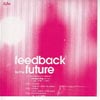 Shoegazing is a genre name that I've always found extremelyinteresting. When you think about it, it is difficult to believe that acollection of musicians reputed to be frozen by downcast eyes couldperpetrate music so full of lush, expansive landscapes and gregariousmelodies. It seems like such a fearful, reticent posture particularlyin the face of music that seems so open and free. Feedback to the Futureis a slice of that dissonance, the very title being contradictory forthis look back. Billing itself as a compilation of eleven shoegazingsongs from those heady days of 1990 to 1992, Feedback serves asa brief dip into the bands of the period. The opening track immersesimmediately with a bright open chord that develops into a fuzzy riffbeneath the major scale melody of Revolver's "Heaven Sent an Angel."It's a bouncy, buoyant song that's an excellent opening shot of earlymorning light. It reminds me that listening to dream pop can be likemainlining sunshine, if that were at all possible. Blind Mr. Jones'"Small Caravan" and Slowdive's "Catch the Breeze" take a less exuberantpath than the opener, but are no less full of shifting textures andbeautiful passages. The latter song floats delicately, rising andfalling in swells of guitar and intertwining vocals that radiatethrough the polished cacophony. Ride's "Like a Daydream" bursts forthin a rush, with a pulsing chug that blooms into the overlapping melodichooks and vocals that find themselves deep in your brain for days afterhearing them. Representing the United States on this British dominatedcompilation is Boston's Drop Nineteens who appear with the song"Winona." The track does not have some of the hallmarks of shoegazingon the other side of the Atlantic, like the crescendo of guitar washes,but it does retain the sense of melody and song craft that makes eachsong on this compilation relentlessly catchy. Feedback to the Futureis a good introduction to some (but certainly not all, a notableexception being My Bloody Valentine) of the bands that made this stylepopular. It's not a perfect document, but hopefully it will encouragethe curious to go about filling in all the blanks on their own.
Shoegazing is a genre name that I've always found extremelyinteresting. When you think about it, it is difficult to believe that acollection of musicians reputed to be frozen by downcast eyes couldperpetrate music so full of lush, expansive landscapes and gregariousmelodies. It seems like such a fearful, reticent posture particularlyin the face of music that seems so open and free. Feedback to the Futureis a slice of that dissonance, the very title being contradictory forthis look back. Billing itself as a compilation of eleven shoegazingsongs from those heady days of 1990 to 1992, Feedback serves asa brief dip into the bands of the period. The opening track immersesimmediately with a bright open chord that develops into a fuzzy riffbeneath the major scale melody of Revolver's "Heaven Sent an Angel."It's a bouncy, buoyant song that's an excellent opening shot of earlymorning light. It reminds me that listening to dream pop can be likemainlining sunshine, if that were at all possible. Blind Mr. Jones'"Small Caravan" and Slowdive's "Catch the Breeze" take a less exuberantpath than the opener, but are no less full of shifting textures andbeautiful passages. The latter song floats delicately, rising andfalling in swells of guitar and intertwining vocals that radiatethrough the polished cacophony. Ride's "Like a Daydream" bursts forthin a rush, with a pulsing chug that blooms into the overlapping melodichooks and vocals that find themselves deep in your brain for days afterhearing them. Representing the United States on this British dominatedcompilation is Boston's Drop Nineteens who appear with the song"Winona." The track does not have some of the hallmarks of shoegazingon the other side of the Atlantic, like the crescendo of guitar washes,but it does retain the sense of melody and song craft that makes eachsong on this compilation relentlessly catchy. Feedback to the Futureis a good introduction to some (but certainly not all, a notableexception being My Bloody Valentine) of the bands that made this stylepopular. It's not a perfect document, but hopefully it will encouragethe curious to go about filling in all the blanks on their own.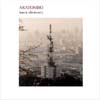 The city groans and grinds on and on. Even in the most tranquil escapesthe roar of traffic is ever present. Maybe for many trapped in therepetition of 9 to 5 it gets blanked out with familiarity. However,travel to the other side of the world to an alien culture and the earsmight prick up. Paul Kirk, a Scotsman relocated to Tokyo, becamefascinated by the urban drone, flux and shuffle all around him. AsAkatombo, he reconfigures the heart of that busy city atmosphere into adislocated merry-go-round ride that is occasionally ominous but usuallybeat happy. Informed by hip hop, but in no way beholden to it, Akatombofinds the drone at the heart of the city and makes it sing. Mobilephones wail, radios tune in and out, babbling voices appear and vanishinto the crowd. This is like a wind blowing a dense smog intofascinating new shapes, a mind grooving on the endless noise of fastpaced city life. Like labelmates Silo, Akatombo manages to sound atonce human and machine, catching the future as it flies. Somecomparisons would be King Coffey's Drain, Muslimgauze and even Faust,the diversity of whom should give some idea of the originality here.This is a hell of an addictive listen and is easily the best album I'veheard from a new artist this year. Gulping oxygen beyond a sea ofMogwai impersonators, Akatombo pushes the 'post-rock' envelope intopositive new shapes. If enough people were clued up to this it couldraise the stakes like that first Tortoise album did.
The city groans and grinds on and on. Even in the most tranquil escapesthe roar of traffic is ever present. Maybe for many trapped in therepetition of 9 to 5 it gets blanked out with familiarity. However,travel to the other side of the world to an alien culture and the earsmight prick up. Paul Kirk, a Scotsman relocated to Tokyo, becamefascinated by the urban drone, flux and shuffle all around him. AsAkatombo, he reconfigures the heart of that busy city atmosphere into adislocated merry-go-round ride that is occasionally ominous but usuallybeat happy. Informed by hip hop, but in no way beholden to it, Akatombofinds the drone at the heart of the city and makes it sing. Mobilephones wail, radios tune in and out, babbling voices appear and vanishinto the crowd. This is like a wind blowing a dense smog intofascinating new shapes, a mind grooving on the endless noise of fastpaced city life. Like labelmates Silo, Akatombo manages to sound atonce human and machine, catching the future as it flies. Somecomparisons would be King Coffey's Drain, Muslimgauze and even Faust,the diversity of whom should give some idea of the originality here.This is a hell of an addictive listen and is easily the best album I'veheard from a new artist this year. Gulping oxygen beyond a sea ofMogwai impersonators, Akatombo pushes the 'post-rock' envelope intopositive new shapes. If enough people were clued up to this it couldraise the stakes like that first Tortoise album did.  Deep beneath the ocean is a world of mystery, wonder, darkness, anddanger. Even if it weren't for the cover art of this German duo'sbrilliant new album, there is unmistakably no other place in theuniverse that has influenced the sounds and movement of what isrepresented within. These drones are not passive in the least. Thedepth and volume are all encompassing, and moving slowly but steadilylike an ancient and lonely large whale through the graveyards ofshipwrecks, at the very beginning of the food chain in which all livingcreatures depend. Recorded live in the studio without overdubs, thefirst two parts are based on live performances the band was touringaround with in 2001, the first being a dark blue rumble, heavy on thelow end and marked by patient melodic movement, the second withswirling guitar strums and leads like the sun coming through in bendedbands of beams: flickering, reflected, and refracted. The intangibleoverwhelming feeling of weight and pressure is unavoidable andinescapable, like being frozen in a dream, unable to move, but calm andcomforting all the same. Around the half-way mark, it dips back intothe darker regions as pitch and pace slow down deeper and deeper anddeeper and deeper yet into the cold, black unknown. The third part wasrecorded as an afterthought, and is described as a new ending. Itsbrightness and chugging backwards-sounding guitars brilliantly accentthe feel that it is a journey which is reaching its end. At this point,it feels that the central figure in the journey seems to be a vessyl ofsome sort, and the 16-minute Part 3 is thematic of a gloriousresurfacing, reintroduction to the bright light of day, and returningto solid ground. But, as the brightness comes, so does an ominous sensethat all might not be right. The world looks different than before, theplaces are familiar but everything's seemed to have changed. Thecredits may roll but this is certainly not the end.
Deep beneath the ocean is a world of mystery, wonder, darkness, anddanger. Even if it weren't for the cover art of this German duo'sbrilliant new album, there is unmistakably no other place in theuniverse that has influenced the sounds and movement of what isrepresented within. These drones are not passive in the least. Thedepth and volume are all encompassing, and moving slowly but steadilylike an ancient and lonely large whale through the graveyards ofshipwrecks, at the very beginning of the food chain in which all livingcreatures depend. Recorded live in the studio without overdubs, thefirst two parts are based on live performances the band was touringaround with in 2001, the first being a dark blue rumble, heavy on thelow end and marked by patient melodic movement, the second withswirling guitar strums and leads like the sun coming through in bendedbands of beams: flickering, reflected, and refracted. The intangibleoverwhelming feeling of weight and pressure is unavoidable andinescapable, like being frozen in a dream, unable to move, but calm andcomforting all the same. Around the half-way mark, it dips back intothe darker regions as pitch and pace slow down deeper and deeper anddeeper and deeper yet into the cold, black unknown. The third part wasrecorded as an afterthought, and is described as a new ending. Itsbrightness and chugging backwards-sounding guitars brilliantly accentthe feel that it is a journey which is reaching its end. At this point,it feels that the central figure in the journey seems to be a vessyl ofsome sort, and the 16-minute Part 3 is thematic of a gloriousresurfacing, reintroduction to the bright light of day, and returningto solid ground. But, as the brightness comes, so does an ominous sensethat all might not be right. The world looks different than before, theplaces are familiar but everything's seemed to have changed. Thecredits may roll but this is certainly not the end. The funny, aloof, quirky Dan Bern is dead, and has been replaced by amature, kindred spirit-type songwriter with his heart firmly on hissleeve on Fleeting Days,and he's all the better for it. Well, not really, as the flippanttongue still wags a bit here and there, but for the most part Bern doesseem to be keeping it away from his cheek and going straight forSerious-singer/songwriter-ville. Luckily, once again he's brought alongthe right backing band in the IJBC (the International Jewish BankingConspiracy) to flesh out these songs, as the arrangements are tight,solid, and never seem like too much. Bern seems more confident in thebandleader role than he's ever been, and as his music and lyrics takeon a more mature feel the subject matter invariably goes where I'dexpect: relationships. Dan's always had a feel for this ground (see"Rome" off his debut for the quintessential "why'd you leave me?"ditty), but his pleas are more heartfelt, more gripping here. On thefirst track, "Baby Bye Bye:" "I turn off the phone so if you don't callit's all right/and maybe I won't listen to nothing tonight," after thedissolution of his affair with a fellow music fan. I'm pretty sureeveryone's been there, and I know I have. On "Chain Around My Neck," hesings "Don't ask you to believe me now, I don't deserve your trust...Next time that I see you let's pretend it's our first date," and youdon't despise him. There's a truth here, which is probably the onething that seemed absent in all of his previous records. I liked thefunny Dan Bern, but at the end of the day I couldn't really believe hewas as absurd as he sounded. On Fleeting Days I believe every word, and it puts Bern solidly on the map of Americana.
The funny, aloof, quirky Dan Bern is dead, and has been replaced by amature, kindred spirit-type songwriter with his heart firmly on hissleeve on Fleeting Days,and he's all the better for it. Well, not really, as the flippanttongue still wags a bit here and there, but for the most part Bern doesseem to be keeping it away from his cheek and going straight forSerious-singer/songwriter-ville. Luckily, once again he's brought alongthe right backing band in the IJBC (the International Jewish BankingConspiracy) to flesh out these songs, as the arrangements are tight,solid, and never seem like too much. Bern seems more confident in thebandleader role than he's ever been, and as his music and lyrics takeon a more mature feel the subject matter invariably goes where I'dexpect: relationships. Dan's always had a feel for this ground (see"Rome" off his debut for the quintessential "why'd you leave me?"ditty), but his pleas are more heartfelt, more gripping here. On thefirst track, "Baby Bye Bye:" "I turn off the phone so if you don't callit's all right/and maybe I won't listen to nothing tonight," after thedissolution of his affair with a fellow music fan. I'm pretty sureeveryone's been there, and I know I have. On "Chain Around My Neck," hesings "Don't ask you to believe me now, I don't deserve your trust...Next time that I see you let's pretend it's our first date," and youdon't despise him. There's a truth here, which is probably the onething that seemed absent in all of his previous records. I liked thefunny Dan Bern, but at the end of the day I couldn't really believe hewas as absurd as he sounded. On Fleeting Days I believe every word, and it puts Bern solidly on the map of Americana.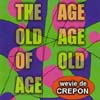 With this new mini-album, Wevie de Crepon follows Kai Althoff'sWorkshop as the newest pleasant surprise from the Sonig label. TheMouse on Mars-owned imprint has consistently combated IDM's sterilespectre with highly original electronic music, often of a popsensibility, but Wevie, like Workshop before them, throw evenestablished Sonig innovators for a loop. Wevie de Crepon, previouslyrecording as Wevie Stonder for Skam records, have made an absurd,sample-ful comedy record set to a (jarringly) diverse bed of electronicsong-craft. Comparisons to Negativland come easily, but Wevie's obtuse,thoroughly apolitical content puts them somewhere else entirely. Thesongs' two-minute pop bursts also separate them from Negativland'ssprawling cut-up orgies; most tracks on The Age Old Age of Old Agefeature a grounding beat with one lengthy sample laid on top, actingalmost as a vocal to the jubilant backing music. The result is that themost absurd of sampled material (like British pseudo-crime dramadialogue, or David Lynch digressing about a duck's eyeball) meshesseamlessly with music that would by itself be marketable to the IDMcrowd. These backing tracks range from full on drill n'bass hoe-downsand Too Pure-ish bliss-out sections, to bouncy, kitsch-laden groovesrecalling Stock, Hausen & Walkman. A keen appreciation of kitsch isessential to the enjoyment of this music, for no level of pristineproduction (certainly present here) is enough to prevent the averagelistener from muttering "the hell is this, then" at least once. One iswarned, after all, by the atrocious cover art; Wevie de Crepon is notfor everyone. The Age Old Age of Old Age runs most "serious"electronic music through a hilarious cycle of degeneration that will beunsettling for those hesitant to give up their respective ghosts.Perhaps this music contains a political agenda after all, one promotingself-criticism, patience, and most of all, a sense of humor.
With this new mini-album, Wevie de Crepon follows Kai Althoff'sWorkshop as the newest pleasant surprise from the Sonig label. TheMouse on Mars-owned imprint has consistently combated IDM's sterilespectre with highly original electronic music, often of a popsensibility, but Wevie, like Workshop before them, throw evenestablished Sonig innovators for a loop. Wevie de Crepon, previouslyrecording as Wevie Stonder for Skam records, have made an absurd,sample-ful comedy record set to a (jarringly) diverse bed of electronicsong-craft. Comparisons to Negativland come easily, but Wevie's obtuse,thoroughly apolitical content puts them somewhere else entirely. Thesongs' two-minute pop bursts also separate them from Negativland'ssprawling cut-up orgies; most tracks on The Age Old Age of Old Agefeature a grounding beat with one lengthy sample laid on top, actingalmost as a vocal to the jubilant backing music. The result is that themost absurd of sampled material (like British pseudo-crime dramadialogue, or David Lynch digressing about a duck's eyeball) meshesseamlessly with music that would by itself be marketable to the IDMcrowd. These backing tracks range from full on drill n'bass hoe-downsand Too Pure-ish bliss-out sections, to bouncy, kitsch-laden groovesrecalling Stock, Hausen & Walkman. A keen appreciation of kitsch isessential to the enjoyment of this music, for no level of pristineproduction (certainly present here) is enough to prevent the averagelistener from muttering "the hell is this, then" at least once. One iswarned, after all, by the atrocious cover art; Wevie de Crepon is notfor everyone. The Age Old Age of Old Age runs most "serious"electronic music through a hilarious cycle of degeneration that will beunsettling for those hesitant to give up their respective ghosts.Perhaps this music contains a political agenda after all, one promotingself-criticism, patience, and most of all, a sense of humor.  Sometimes it's all about figuring out what ingredient doesn't work,apparently. When Sunny Day Real Estate split in 1995 and then reformedin 1997 without original bassist Nate Mendel, some thought thatfrictions were still present that may have caused the split, preventingMendel from returning to the fold. Then in 2001, just when the bandseemed to be branching out into new territory, the band split again,leaving many scratching their heads: why split up at the height of yourpopularity, reform, then split up again right when all seemed to be inplace? According to recent interviews with band members, it wasoriginal guitarist Dan Hoerner who caused some of the troubles, makingit very difficult to work with him. So, when vocalist/guitarist JeremyEnigk and drummer William Goldsmith wanted to record some new material,they decided to go it alone, only to have Mendel accept the invitationthis time. Obviously, the name would have to change, as there waslittle mileage left in it, so they chose The Fire Theft and headed tothe studio with Brad Wood. The result is a little bit SDRE and a wholelot breaking new ground, with myriad synthesizers (courtesy of Wood)and new noises making their way onto the record. Through it all,Enigk's voice is the anchor as it always has been, and the record is abold new beginning and another chance at success. "Faces in Disguise"off SDRE's The Rising Tideis a good frame of reference for this record, as the sound seems totake that track's atmospheric approach and build on it. "UncleMountain" is as impressive an album opener as I've heard this year,starting off muted and quiet then lunging for the death blow halfwaythrough. Elsewhere, "It's Over" and "Waste Time" show off classic Enigkwails and familiar guitar crunches fans will adore. It's a powerfuldebut, full of promise, and a redemption from the ashes of the past.Fire theft, indeed.
Sometimes it's all about figuring out what ingredient doesn't work,apparently. When Sunny Day Real Estate split in 1995 and then reformedin 1997 without original bassist Nate Mendel, some thought thatfrictions were still present that may have caused the split, preventingMendel from returning to the fold. Then in 2001, just when the bandseemed to be branching out into new territory, the band split again,leaving many scratching their heads: why split up at the height of yourpopularity, reform, then split up again right when all seemed to be inplace? According to recent interviews with band members, it wasoriginal guitarist Dan Hoerner who caused some of the troubles, makingit very difficult to work with him. So, when vocalist/guitarist JeremyEnigk and drummer William Goldsmith wanted to record some new material,they decided to go it alone, only to have Mendel accept the invitationthis time. Obviously, the name would have to change, as there waslittle mileage left in it, so they chose The Fire Theft and headed tothe studio with Brad Wood. The result is a little bit SDRE and a wholelot breaking new ground, with myriad synthesizers (courtesy of Wood)and new noises making their way onto the record. Through it all,Enigk's voice is the anchor as it always has been, and the record is abold new beginning and another chance at success. "Faces in Disguise"off SDRE's The Rising Tideis a good frame of reference for this record, as the sound seems totake that track's atmospheric approach and build on it. "UncleMountain" is as impressive an album opener as I've heard this year,starting off muted and quiet then lunging for the death blow halfwaythrough. Elsewhere, "It's Over" and "Waste Time" show off classic Enigkwails and familiar guitar crunches fans will adore. It's a powerfuldebut, full of promise, and a redemption from the ashes of the past.Fire theft, indeed.  Sound are the duo of Eric Lumbleau (of Vas Deferens Organization) and Joel Zoch. Their first release for Beta-Lactam Ring is the Screaming Zenith double LP beautifully packaged in a deluxe gatefold sleeve adorned with grotesquely distorted pornography. This is the first clue of the twisted sonic perversions waiting inside. The second clue is the dadaist song titles, full of goofy alliteration and lysergic wordplay. Sound's sound is a quivering gelatin of sinister whimsy: Aphex-style beat sequencing rubs shoulders with Numan-esque keyboards, fuzzy Western guitars, creepy voice loops and sudden, terrifying plunges into ring-modulated, echo-chambered oblivion.
Sound are the duo of Eric Lumbleau (of Vas Deferens Organization) and Joel Zoch. Their first release for Beta-Lactam Ring is the Screaming Zenith double LP beautifully packaged in a deluxe gatefold sleeve adorned with grotesquely distorted pornography. This is the first clue of the twisted sonic perversions waiting inside. The second clue is the dadaist song titles, full of goofy alliteration and lysergic wordplay. Sound's sound is a quivering gelatin of sinister whimsy: Aphex-style beat sequencing rubs shoulders with Numan-esque keyboards, fuzzy Western guitars, creepy voice loops and sudden, terrifying plunges into ring-modulated, echo-chambered oblivion. The essence of 'doing it yourself' is to avoid any hints of compromise, watering down, or loss of vision so that you may release a work that is totally and completely pure. It's a personal expression that is something to be proud of. Unfortunately, it seems that along the road to self-actualization some people eschew both quality control and thoughtful planning.
The essence of 'doing it yourself' is to avoid any hints of compromise, watering down, or loss of vision so that you may release a work that is totally and completely pure. It's a personal expression that is something to be proud of. Unfortunately, it seems that along the road to self-actualization some people eschew both quality control and thoughtful planning.
